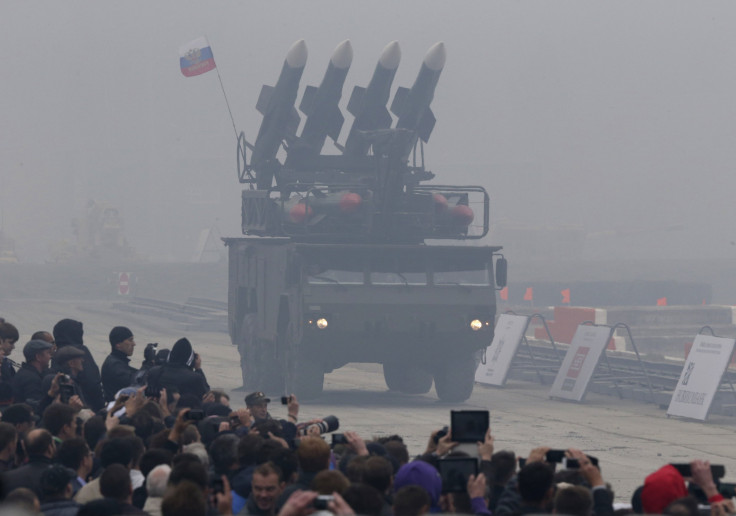US Negotiating With Russia, China Over Arms Control? New Talks Set For Late June But Doubts About Chinese Interest

KEY POINTS
- The New START expires in February. It is the last of the U.S.-Russian arms agreements in force
- The U.S. last month pulled out of the Open Skies Treaty
- The arms reduction talks reportedly are set for June 22 in Vienna
With just one U.S.-Russia arms control treaty remaining and scheduled to expire early next year, negotiators have agreed to meet later this month – and China is invited to join, an invitation Beijing is likely to turn down.
Marshall Billingslea, newly appointed U.S. special presidential envoy for arms control, tweeted Monday agreement on holding talks had been reached with Russian Deputy Foreign Minister Sergei Ryabkov.
Today agreed with the Russian Deputy Foreign Minister Ryabkov on time and place for nuclear arms negotiations in June. China also invited. Will China show and negotiate in good faith?
— USArmsControl (@USArmsControl) June 8, 2020
Bloomberg reported the talks are set for June 22 in Vienna.
Last month, the U.S. withdrew from the Open Skies Treaty, a decision sharply criticized by U.S. European allies. The U.S. accused Russia of multiple violations that had undermined confidence in the agreement. The decision left the soon-to-expire START as the only remaining arms control pact between the two countries with the largest nuclear arsenals in the world.
Billingslea has said Ryabkov is in agreement that China should be part of the arms control process and earlier said Beijing must stop “hiding behind the Great Wall of secrecy.” Chinese Foreign Ministry spokesman Zhao Lijian said last month China had no intention of engaging in trilateral talks but urged Washington and Moscow to negotiate a new agreement. Intelligence estimates put China’s nuclear arsenal at 300 nuclear weapons, compared with the thousands in the U.S. and Russia.
“China has repeatedly stated its position,” Hua Chunying a news briefing in Beijing last week. “We have no intention to participate in the so-called trilateral arms control negotiations with the U.S. and Russia. That’s consistent and clear.”
The New Strategic Arms Reduction Treaty is a decade old and scheduled to expire in February. It limits the number of ballistic missiles and launchers, as well as the number of strategic nuclear warheads. It also incorporates a verification regime but does not “constrain testing, development, or deployment of current or planned U.S. missile defense programs or long-range conventional strike capabilities,” the State Department says.
The U.S. hopes to extract stricter verification measures in the talks and also wants to include all nuclear weapons, not just strategic warheads. The administration also reportedly is convinced China is in the midst of a nuclear buildup.
Steven Pifer, a Stanford University fellow, wrote on Defense One the administration strategy is unlikely to lead to a new agreement.
“The administration to date has offered no idea of what a trilateral agreement might look like. Are Washington and Moscow prepared to reduce their nuclear weapons to a total of 300? No,” he wrote. “Are they prepared to accept an agreement that would legitimize a Chinese buildup to their levels? Again, no. Does anyone expect China to accept an agreement with unequal limits?”
Chinese Foreign Ministry spokesman Geng Shuang has said the only reason the U.S. wants to include China in the talks is because it is trying “to dodge and shift its responsibilities for nuclear disarmament.”
© Copyright IBTimes 2025. All rights reserved.






















